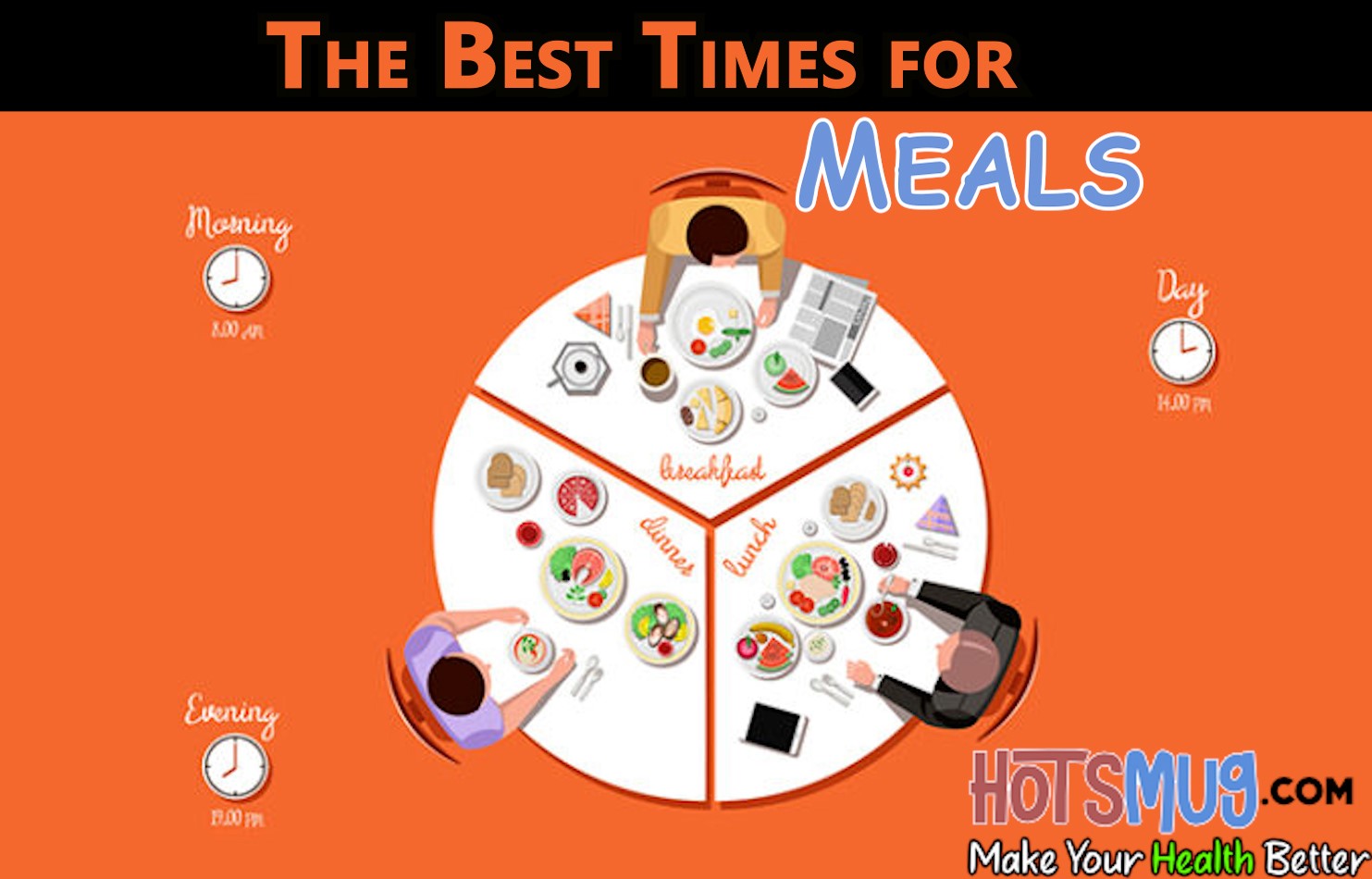You have probably given a lot of thought to what you eat — finding the right balance between fruits, veggies, proteins and carbs. But have you ever thought about when you eat?
Eating meals at the right time of day can provide many benefits. It can help you maintain a healthy weight, keep your energy up and perhaps even fight off disease. But how do you determine what the right time is?

We say, what we eat is important. Eating healthy and nutritious foods can help in weight loss and disease free life, to a great extent.
But, how far does eating in right time adds to the healthy lifestyle? Well, eating your meals in time is as important as eating healthy foods. In fact, eating healthy and timely, is best for good healthy and prosperity.
Ideal time to eat your meals is the best way to put your body into healthy eating.
It not only curbs your hunger but also boost your metabolism, attaining results in weight loss and healthy diet plans.
According to the research, maintaining a stipulated time between your meals and eating with the clock can set your metabolic rates to maximum, which keeps fat accumulation at bay.
We’ve gathered some information to help you determine the best eating time schedule, plus a few tips for putting these eating tips into practice while balancing with an active lifestyle to achieve optimal health.
Here is what our expert says
- “Eat like a king in the morning, a prince at noon, and a peasant at dinner”- Moses ben Maimon, Jewish philosopher & physician.
- Breakfast is the most important meal of the day, and as the sun sets, our calorie intake should also reduce.
- People who regularly eat breakfast don’t put on weight as easily.
- Light and early dinner is helpful in reducing reflux.
The best times to eat
Keeping a consistent meal schedule from day to day is linked to weight loss, an increase in energy, and a reduction in metabolic risk factors for chronic disease.
Still, eating at the same time every day may not always be doable, so it’s best not to take a one-size-fits-all approach to mealtimes.
What’s more, individual genetics affect much of how our bodies regulate circadian rhythms that interact with mealtimes. Thus, there’s no single best mealtime schedule for everyone, and it may take some trial and error to discover the best mealtimes for you.
Here are some guidelines to keep in mind when scheduling your meals.
BREAKFAST
– Eat within 30 minutes of waking up
– Ideal time to have breakfast is 7am
– Do not delay breakfast later than 10am
– Make sure you have protein in your breakfast
LUNCH
– Ideal time to have lunch is 12.45pm
– Try and keep a gap of 4 hours between your breakfast and lunch
– Do not delay lunch later than 4pm.
DINNER
– The ideal time to have dinner is before 7pm
– You should keep a gap of 3 hours between your dinner and bedtime
– Do not delay dinner later than 10pm
– Eating close to bedtime can interfere with the quality of sleep
WORKOUT MEALS
– Never workout (especially weight training) on empty stomach
– The right pre-workout meal could be protein sandwich (with chicken, tuna etc), protein shake, scrambled egg with whole wheat bread, peanut butter sandwich
These guidelines may be useful when trying to decide upon a consistent meal routine to follow.
However, you’ll likely want to consider some individual factors as well, such as:
- Health conditions. Many medications must be timed with meals and may dictate when you need to eat. Conditions like diabetes also require eating at certain times of the day to maintain proper blood sugar levels.
- Your daily routine. We often time our meals around work schedules and personal obligations. That may mean eating earlier or later than you would ideally like to. In this case, maintaining consistency may still help limit disruptions to your circadian rhythm.
- Type of meal. On days when you have no choice but to eat later in the evening, choosing small, nutrient-dense, yet simple meals can aid digestion and limit circadian rhythm disruptions.
- Your instincts. Mealtimes will likely fluctuate from day to day. It’s important to trust your instincts and allow yourself to eat when you’re hungry, even if it’s at a different time of the day than you planned.
What to do if you’re not hungry
Many people say that they aren’t hungry at certain meal times, especially for breakfast. If you frequently skip breakfast, you have trained your body not to send hunger signals at that time because they have long been ignored. Your body needs energy in the morning, so fuel it accordingly.
If you begin to re-introduce breakfast daily, your natural hunger cues will return. Breakfast can be as simple as a protein shake, hard-boiled eggs with fruit, or whole grain toast with peanut butter or almond butter. Eat a breakfast that includes protein so that you can stay energized through lunchtime.
Why is it important to have timely meals?
The time your schedule to have your meals determines your metabolism. Eating at the right time can promote a good metabolic rate. Irregular meal timings can result in health problems like obesity, sleeping disorders, poor digestive health, and acidity .So never skip your meals or keep long gaps between them. Besides, make sure you are drinking at least eight glasses of water every day.
How to Balance Your Meals and Your Busy Schedule
Balancing your workouts, school or work, and your meals can be challenging. Below are a few tips to help you stay on track.
- Meal prep- Plan and prepare your meals in advance to help you have your meals ready so that you can eat them on schedule. This will help you stay on track with your eating schedule while avoiding the temptation of fast food or unhealthy snacks.
- Change things up- Don’t be afraid to experiment by slightly changing your meal time to help you hit the optimal times. After you’ve got your meal schedule down, you can add in exercise to see how your body responds. Also, try experimenting with the timing of your workout. If you’ve always worked out in the morning, try working out in the evening to see if your body responds better to the change in time.
The bottom line
Eating a majority of your calories earlier in the day and limiting how much you eat later in the evening or through the overnight hours may help your body digest your food more efficiently.
It may also reduce your risk of certain risk factors for metabolic conditions like diabetes and obesity.
However, there is no magic bullet when it comes to mealtimes. The right eating schedule for you may depend on many factors, including your daily routine, health conditions, and genetics.
Nevertheless, by keeping the fundamentals of mealtimes in mind while allowing yourself flexibility, you can feel confident about your meal schedule — no matter what obstacles the day throws your way.
So now, eat in right time along with eating right food!




